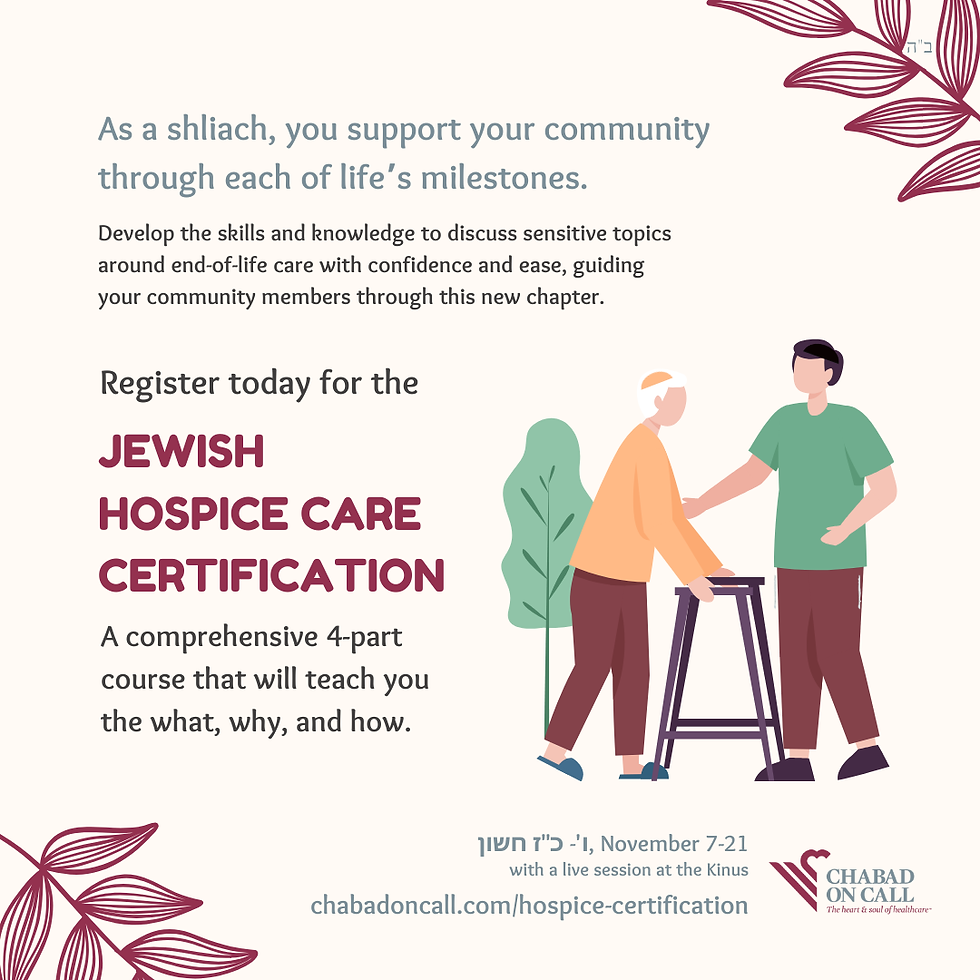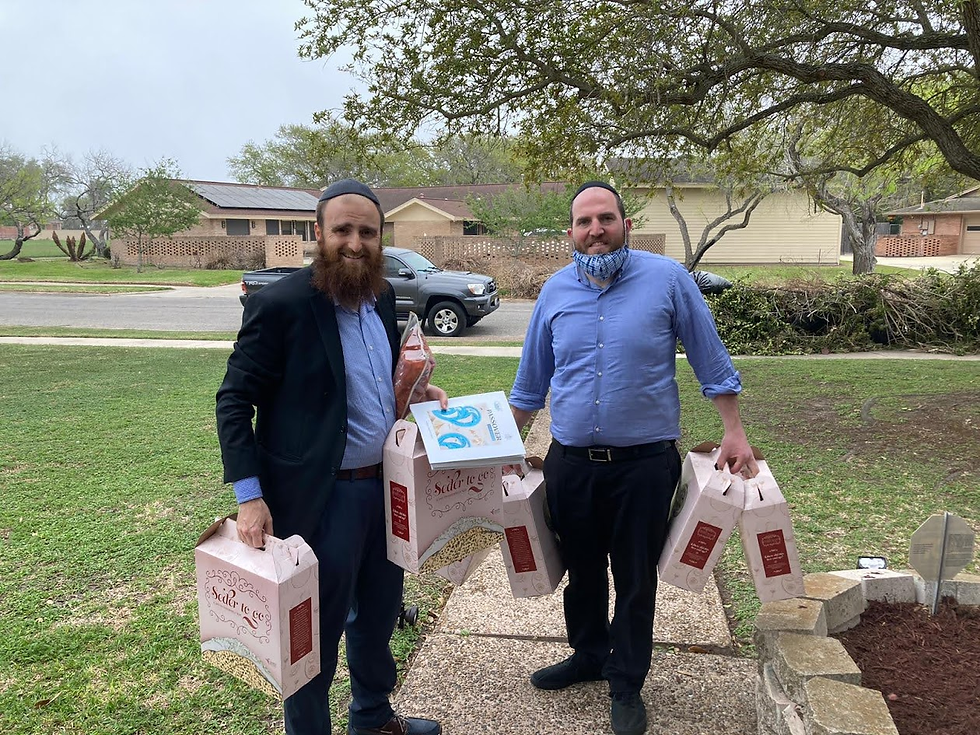New Course To Certify Shluchim in End-of-life Counseling
- Staff Writer
- Oct 31, 2024
- 3 min read

The Jewish Hospice Care Seminar, a four-part course from Merkos 302’s Chabad On Call equipping Shluchim with the tools to provide end-of-life spiritual care, is open for registration. Starting virtually on Nov 7th and concluding in person at the Kinus Hashluchim, the course will help Shluchim across the country provide care to more Yidden with dignity and respect.
Shluchim care for Yidden from all walks of life, at all stages of their lives. From the moment a Jewish baby is born, until the moment their soul departs this world, Jewish practice and rituals mark crucial occasions throughout. Chabad On Call at Merkos 302 has designed an accessible program to teach Shluchim the required skills and know-how to care for Jewish patients in end-of-life scenarios.
The program blossomed out of increased demand for Jewish representation in the hospice care space. Chabad On Call provides ACPE-accredited training for hospital chaplains; however, full-time chaplaincy positions are mostly found in hospitals near large Jewish populations. For many Yidden who end up in palliative care elsewhere in the country, the local shliach is their first responder for all things Judaism-related.
“After receiving calls from prominent hospice chains across the country, requesting pastoral services for Jewish patients, we noticed a need for more focus on this area,” explains Mrs. Chani Goldberg, Director of Chabad On Call at Merkos 302. “Working with notable professionals in the field, we designed a crash course for any shliach to navigate these delicate situations with professionalism and sensitivity.”
Hospice care presents unique challenges. For individuals with terminal illnesses, care centers focus on providing holistic support—physical, emotional, social, and spiritual—helping patients approach the end of life with dignity. Medical staff handle physical care, while spiritual guidance rests on the local Shliach. Knowing what to say and how to be present in these moments can leave a lasting impact on patients and their families. This course, grounded in Torah and Chassidus, prepares Shluchim for these delicate interactions.
“In establishing a robust network of Shluchim, the Rebbe created the largest infrastructure of support for Jewish people worldwide, ensuring that every Jew is cared for with compassion,” says Rabbi Mendy Kotlarsky, Executive Director of Merkos 302. “The Rebbe consistently emphasized the healing power of spiritual care, reminding us that hope is never lost, even in the most challenging times.”
The program consists of three online sessions. The first two are led by Rabbi Hillel Baron, Shliach to Columbia, Maryland, and the Jewish Community Chaplain of Howard County, MD. These lay the foundational skills to help hospice patients and their families, including an introduction to hospice care, building rapport in an initial visit, and identifying a patient's spiritual needs.
A third session is led by Rabbi Levi Gurkov, Shliach to Oceanside, New York, and experienced chaplain. Presenting the correct approach to Jewish end-of-life traditions including Shema, Vidui, as well as continuing family support after death during burial and shiva.
The program concludes with an in-person session at this year’s Kinus Hashluchim where participants will apply their knowledge with hands-on workshops, and group discussions. This session will be presented by Rabbi Yonason Meadows, BCC, MSW, Manager of Clinical Pastoral Education Midwest Region who also leads Chabad On Call’s in-depth ACPE accreditated Chaplain course, and moderated by Rabbi Hillel Baron and Rabbi Sholly Freundlich of Chabad Care and Staff Chaplain at Memorial Sloan Kettering Cancer Center in Manhattan.
Participants who complete the course will receive a certificate from Chabad On Call, enabling them to step into this role seamlessly, should the need arise.
To register for the Jewish Hospice Care Course please visit: https://www.chabadoncall.com/hospice-certification



Comments